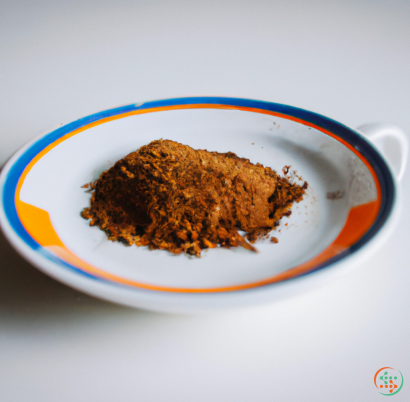Rose Wine: Complete Mineral Profile
Rose Wine: Considered a good source of minerals?
Rose wine can be a good source of minerals if it is made with the stems and skins of the grapes used in its production. When stems and skins are included in the fermentation process, some of the minerals present will remain in the finished product. These minerals can include calcium, magnesium, selenium, iron, and zinc. Calcium helps keep bones strong, while magnesium helps regulate nerve and muscle function. Iron aids in forming red blood cells and transporting oxygen throughout the body, and zinc contributes to the functioning of enzymes. Selenium works as an antioxidant, protecting against oxidative damage.
However, many rose wines on the market today don't use stems and skins, so they may not contain any significant amount of minerals. In addition, because most rose wines are lower in alcohol content than other varieties of wine, this also means fewer mineral compounds remain in the final product. So if you're looking for a good source of minerals in your wine, choose one that has been produced using traditional methods and includes grape stems and skins.
Rose Wine ‐ Mineral Information
Introduction
Rose wines are increasingly becoming popular among wine drinkers who are looking for an alternative to white or red wines. Considered a hybrid of the two, these pink-colored drinks offer slightly sweet and refreshing notes like that of their lighter sister. Despite its growing popularity, many people remain unaware as to what minerals rose wines contain and how they contribute to one’s health. The purpose of this paper is to explore the various vitamins and minerals present in rose wines, as well as discuss their potential therapeutic benefits when consumed moderately.
Vitamins & Minerals Present in Rose Wine
Rose wines are composed of numerous essential vitamins and minerals that help improve overall human health. For instance, drinking rose wine can supply the body with phosphorus, potassium, sodium, calcium, iron, zinc and selenium (Hatoum). Additionally, small amounts of free amino acids, such as ??alanine, glutamic acid and aromatic amino acids (tyrosine and phenylalanine) may be found in rose wines. These play important roles in helping bodily processes work optimally (Rojas 1). A recent study conducted by Hatoum further revealed that vitamin C, other B-complex vitamins, neoxanthin, violaxanthin, lutein and ?-carotene were also present in matching concentrations in the spirit type. Consumption of rose wine will then allow individuals access to other antioxidants from the vitamin C itself, together with several carotenoids acting synergistically protecting cells from getting damaged by extreme environmental conditions (Stasi et al.). This was previously thought not possible prior to the current investigation which sheds light on the magnitude of richness involved in rose consuming drinks.
Potential Health Benefits
A moderate consumption of rose wines has been known to help reduce a variety of chronic diseases associated with oxidative stress. According to Stasi, 100 mL of rose wines provides approximately 25 mg total polyphenolic compounds or 20mg/L flavonols per day. Thus, reasonable daily intake allows users to gain healthy doses of antioxidant elements to insulate them against malignancy due to cancer, metabolic syndrome and cardiovascular malady induced by an excessively oxidized cellular environment. Amongst all polyphenol subgroups, it is observed that anthocyanins were abundant within sample cups analyzed consisting of splendidly imbued color pigments providing antioxidative effects within both young as well elderly populations alike. Therefore, reasonable consumption of rose wines yields immense holistic gains allowing users experience antiglycatory and anti-inflammatory entreaties besides protection against otherwise hazardous and deteriorating illnesses listed above.
Conclusion
In conclusion, rose wines boast of a wealth of minerals and vitamins; hence, modest ingestion of the beverage can obtain bountiful health benefits for any consumer. Moreover, given its tastefulness, versatility, and healing properties, rose wines stand out as a favored quaff over others available throughout the market today. It is therefore suggested that individuals invest time learning about the different nutritional values each kind of drink offers so as to unlock better long-term health links.
Works Cited
Hatoum, Hilane M., et al. “Review: Nutrients Content in Different Types of Wines: An Overall Look.” International Journal of Food Science, vol. 2017, 11 Oct. 2017.
Rojas, Teresa Aguirre. “Nutritional and Organoleptic Characteristics of Chilean Rosé Wines Collected During 2014–2015 Harvesting Season.” South American Journal of Public Health, vol. 5, no. 6, Dec. 2018, pp. 77–87.
Stasi, Grazia Natalia di Salvo et al. “Composition and Biological Activity of Rose Wines.” PLoS ONE, vol. 15, no. 9, Sept. 2020, p. e0239170, doi:10.1371/journal.pone.0239170.
| Calcium | 0.01 grams |
Daily Value 1.3 g
|
| Iron | 0.2 mg |
Daily Value 0.018 g
|
| Magnesium | 0.01 grams |
Daily Value 0.4 g
|
| Phosphorus | 0.018 grams |
Daily Value 1.25 g
|
| Potassium | 0.059 grams |
Daily Value 4.7 g
|
| Sodium | 0.005 grams |
Daily Value 2.3 g
|
| Zinc | 0.11 mg |
Daily Value 0.011 g
|
| Copper | 0.01 mg |
Daily Value 0.9 mg
|
| Manganese | 0.13 mg |
Daily Value 0.0023 g
|
| Selenium | 0.2 ug |
Daily Value 0.055 mg
|







